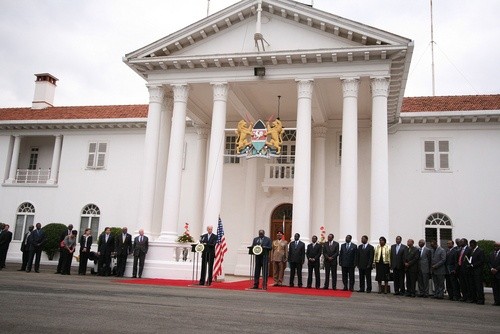Kenya – In a historic move, United States President Joe Biden has named Kenya the first key non-NATO ally in sub-Saharan Africa. This designation marks a significant step in the longstanding partnership between the two nations, enhancing Kenya’s security cooperation with the U.S. and granting it access to more advanced military resources.
What is a Major Non-NATO Ally?
For those unfamiliar with the term, a major non-NATO ally (MNNA) is a designation given by the United States to close allies that have strategic working relationships with the U.S. military but are not members of the North Atlantic Treaty Organization (NATO). This status provides several benefits, including priority delivery of military equipment, participation in cooperative defense research and development projects, and access to special military training programs. It is a signal of strong diplomatic ties and a commitment to mutual security interests.
During a three-day state visit by Kenyan President William Ruto, President Biden announced this pivotal development, highlighting the deepening ties between the two countries. This visit, the first of its kind by an African leader to Washington in over 15 years, underscores the strategic importance of Kenya in East Africa.
Kenya’s designation as a major non-NATO ally allows it to procure sophisticated U.S. weapons and engage in closer security collaborations. As part of this new status, Kenya will receive 16 helicopters and 150 armored cars to bolster its security operations and peacekeeping missions.
However, this development raises some concerns. The helicopter that tragically crashed, resulting in the death of former Kenyan General Francis Ogolla, was also donated by the USA. This incident has sparked questions about the safety and reliability of these military assets.
Despite these concerns, the alliance between Kenya and the U.S. remains robust. President Biden emphasized the mutual benefits of this partnership, stating,
“Our joint counterterrorism operations have degraded ISIS and Al-Shabaab across East Africa. Our mutual support for Ukraine has rallied the world to stand behind the UN charter. And our work together on Haiti is helping pave the way to reduce instability and insecurity.”
Kenya’s emerging role as a crucial security partner is evident in its participation in the Ukraine Defence Contact Group coalition and its recent pledge to send 1,000 police officers to Haiti. This commitment highlights Kenya’s dedication to global peacekeeping efforts and its alignment with U.S. foreign policy objectives.
In contrast to its successes in Kenya, the U.S. faces challenges in other parts of Africa. The Pentagon has confirmed the withdrawal of around 1,000 troops from Niger by September, following the collapse of security cooperation due to the country’s closer ties with Russia and Iran after a coup toppled its democratically elected president.
President Ruto expressed his gratitude, noting,
“Kenya and Africa have a strong and committed friend in President Biden.”
Once the U.S. Congress approves this designation, Kenya will join 18 other nations as a major non-NATO ally, solidifying its position as a key player in regional and global security.
This enhanced partnership between Kenya and the U.S. is a testament to years of collaboration and mutual support, paving the way for greater stability and security in East Africa and beyond.
